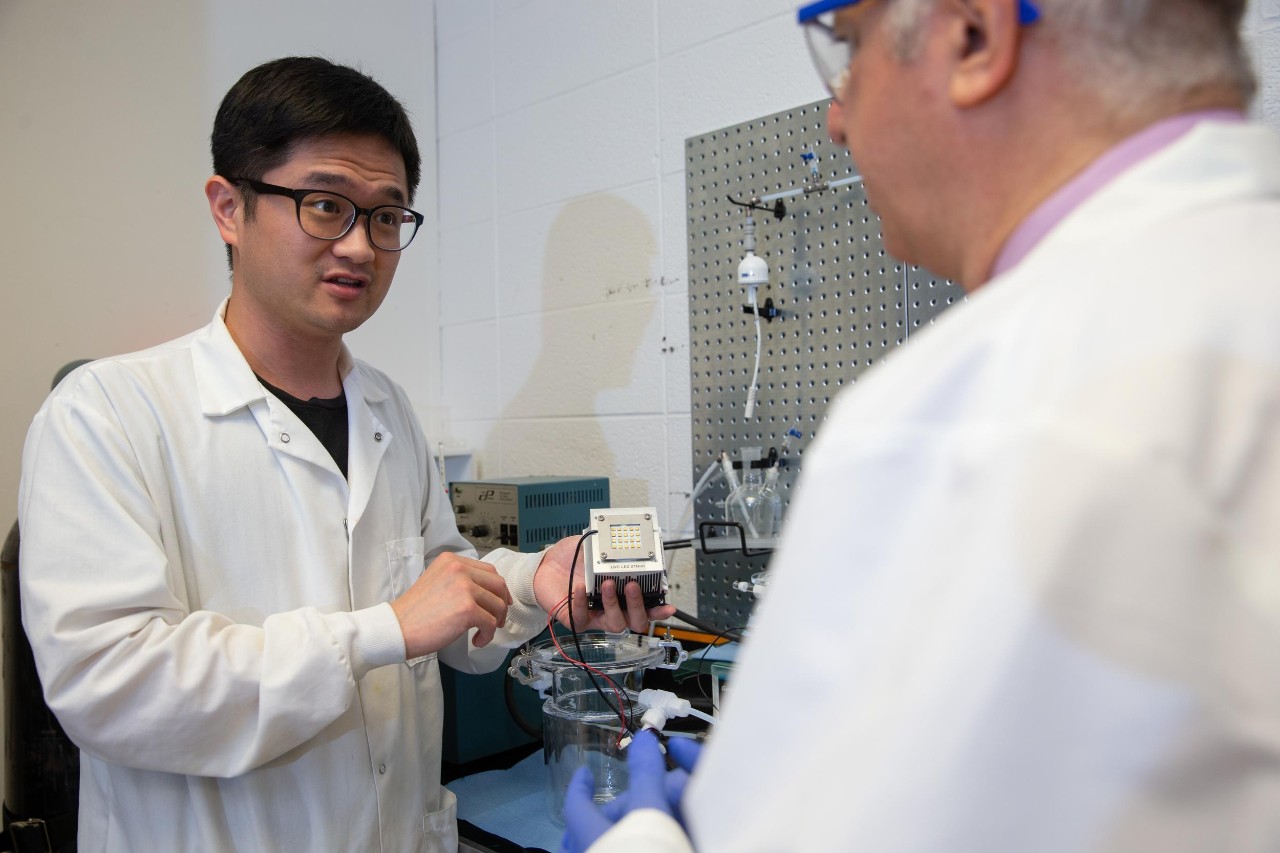
Chlorine plus UV light can detoxify water affected by harmful algae blooms
UC engineers study ways to protect drinking water
Phys.Org and other science and engineering outlets highlighted a new study by the University of Cincinnati that examined cost-effective methods to protect drinking water from harmful algae blooms.
Blue-green algae can reproduce in waters laden with nitrogen, phosphorus or other excess nutrients, said Minghao Kong, a doctoral graduate of UC's College of Engineering and Applied Science.
Now at Emory University, Kong was lead author of a paper examining the use of chlorine and ultraviolet light to treat and detoxify water contaminated with cyanotoxins from blue green algae.
The study was published in the journal Environmental Science & Technology.
Kong said researchers have been looking at new ways to mitigate the problem after algae blooms threatened sources of public drinking water, as happened in Toledo in 2014 when the city issued a do-not-drink order to 500,000 residents. Similar incidents close beaches and lakes every year in the United States.
Featured image at top: UC doctoral graduate Minghao Kong talks to the late UC Professor Dionysios Dionysiou in this 2022 file photo. Photo/Andrew Higley/UC Marketing + Brand

The late UC Professor Dionysios Dionysiou, left, and UC doctoral graduate Minghao Kong work on a project to detect and treat cyanotoxins in drinking water in this 2022 photo. Photo/Andrew Higley/UC Marketing + Brand
More UC environmental engineering in the news

UC's Mantei Center is one of several Uptown Campus facilities dedicated to students in the College of Engineering and Applied Science. Photo/Andrew Higley/UC Marketing + Brand
Related Stories
Knowridge: Scientists turn greenhouse gas into plastics
February 15, 2024
Energy writers highlight UC College of Engineering and Applied Science Associate Professor Jingjie Wu's innovations to convert carbon dioxide into ethylene for use in industry.
UC steers innovation in carbon capture for coal-fired power plants
June 13, 2024
Researchers at the University of Cincinnati are developing new technologies to address pollution and greenhouse gases from coal-fired power plants.
Scientists find shocking changes in global river flooding
December 13, 2024
CNN highlights a study in Science by a University of Cincinnati environmental engineer and the University of Massachusetts Amherst that examined how the flow of rivers is changing dramatically in waterways around the world. Researchers found significant increases in upstream flooding that leads to erosion and sedimentation, among other consequences.
